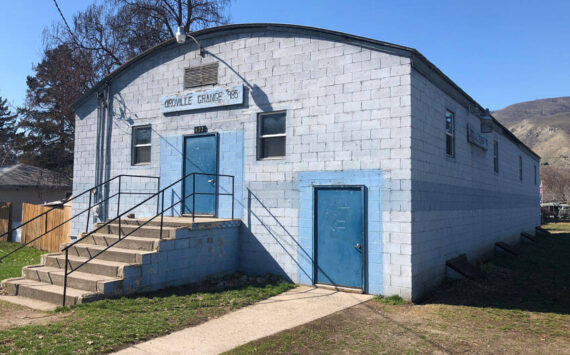

Of course they don’t steal it directly they do it using a sort of clumsy slight of hand. The federal government gives back so much revenue to timber dependent counties – they give it to the state to distribute based on the actual revenues generated in each county and that’s supposed to go toward the schools. And it does, only lets say Oroville gets $100,000 and Tonasket gets $140,000 – the money is awarded and then the state deducts that amount from what these schools would get in Basic Education Funds. It’s like someone giving you a new car and stealing the new car you bought yourself that very day.
Legislation by Rep. Kathy Haigh (D-Shelton) would stop penalizing public schools in timber communities when it comes to basic education funding.
“This is a common-sense reform that reflects our common values,” said Haigh recently in a press release. She’s chair of the House Appropriations Subcommittee on Education. “It’s supported by Democrats and Republicans who agree that it’s wrong to let a quirk in the law punish students in timber towns.”
The quirk, she says, comes from the fact that the state’s forests were picked by the state’s founders as a source for school funding. But if your home county has federal forests, as many rural counties do, local schools get less in basic education funding from the state.
The total different is about $8.3 million in 2014, according to the legislator.
“Eight million dollars is budget dust up in Seattle or Bellevue, but out in one-stoplight logging towns, that could half the budget for the entire school district. So this reform matters for kids and teachers and parents out in timber country.”
Coastal Caucus members have already signed on to co-sponsor House Bill 2207, including Rep. Steve Tharinger (D-Sequim), Rep. Brian Blake (D-Aberdeen) and Rep. Kevin Van De Wege (D-Sequim). Six Republican lawmakers have also signed the bill as co-sponsors.
“Families and schools out in timber country are still recovering from the recession,” Haigh said. “This reform would help give them the education they need to live the American Dream.”
The first section of the bill reads, “School districts in counties with federal
forests are at a disadvantage in terms of generating local revenue due
to economic and private development opportunities that are forgone on
these lands. The legislature intends to no longer reduce state basic education funding to school districts in counties with federal forest
lands. The money school districts receive as a result of federal
forest revenue payments should be considered as grants, or compensation, to inhabitants of local areas for impacts associated with
the presence of federal lands. These revenues should be delivered to
school districts as a supplement to basic education allocations in addition to the state’s basic education apportionment.”
Oroville School Board Directors Rocky DeVon and Todd Hill just returned from meeting with legislators in Olympia. They said that while it hasn’t always been so, the Washington State School Directors Association has made changing the appropriations as one of their top 10 issues.
It’s unfortunate our government works this way and it keeps rolling down the hill. If the feds cut funding to the state, the state cuts from the counties, cities and schools – even if they have been mandated by the federal government and state to continue providing the same level of services.
What’s even worse is a state taking money that traditionally went to school districts that can least afford to lose it. And giving with one hand and taking away with the other is no better than stealing from our children’s future. It’s good to see some of our legislators and WSSDA working to restore what traditionally had been a positive for our rural school districts.






